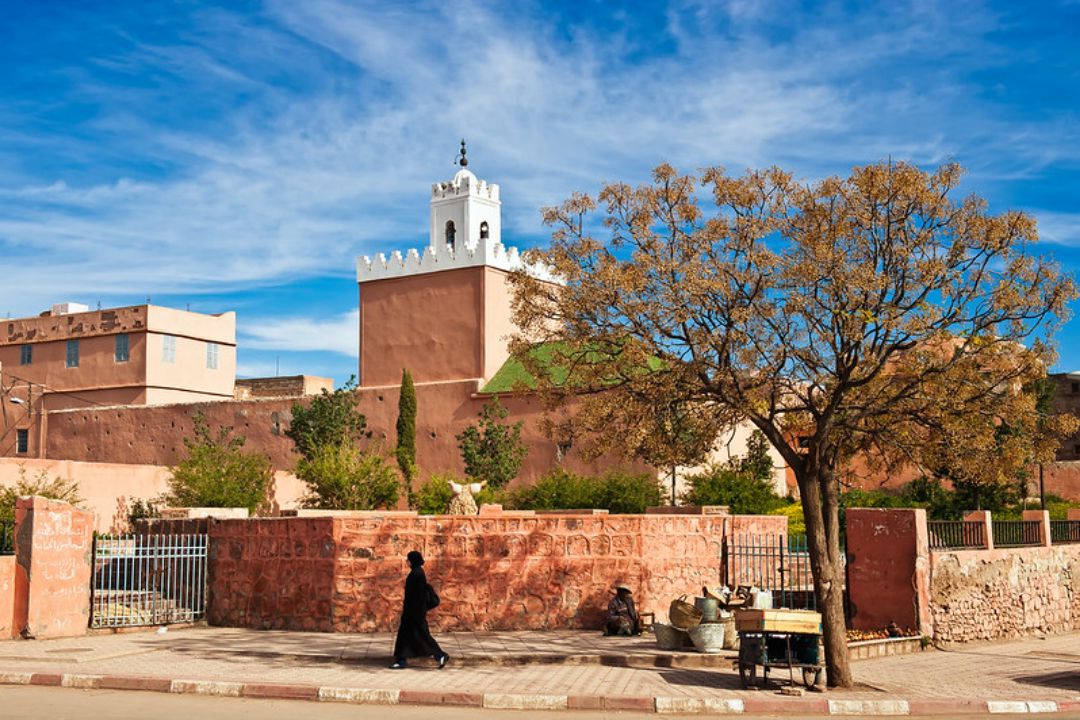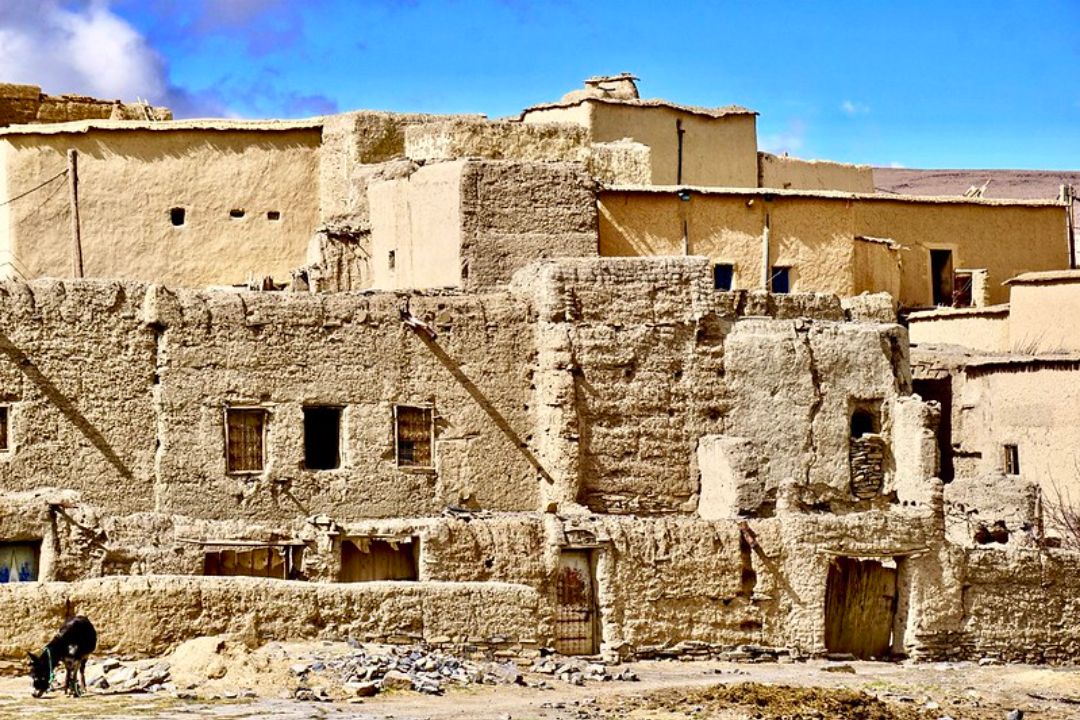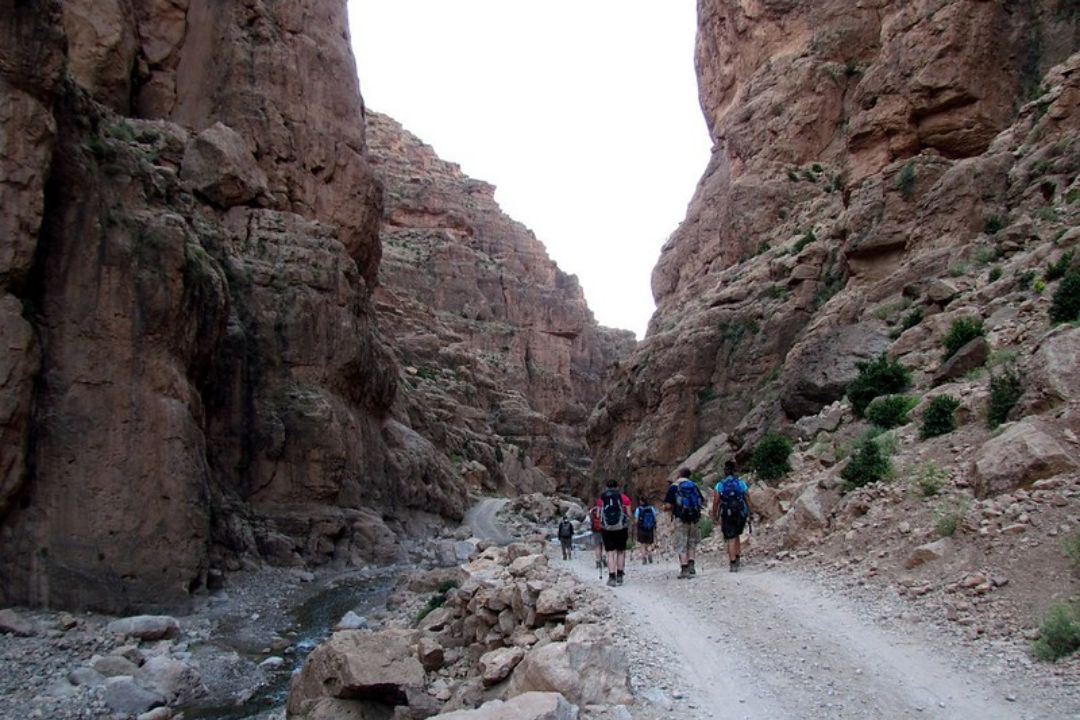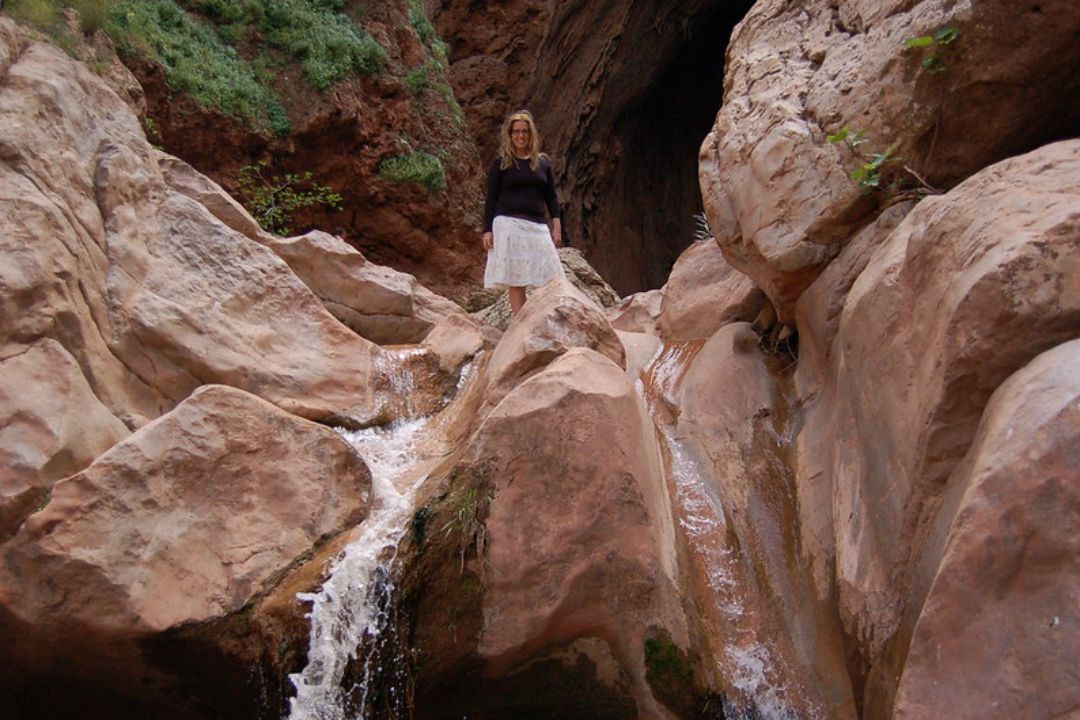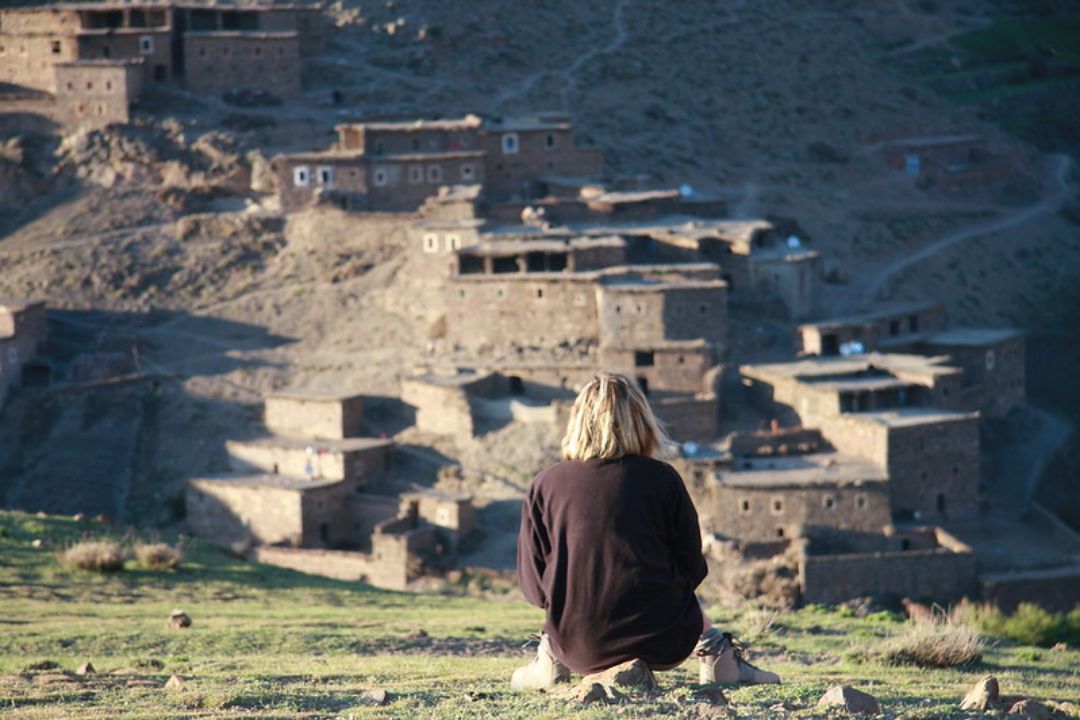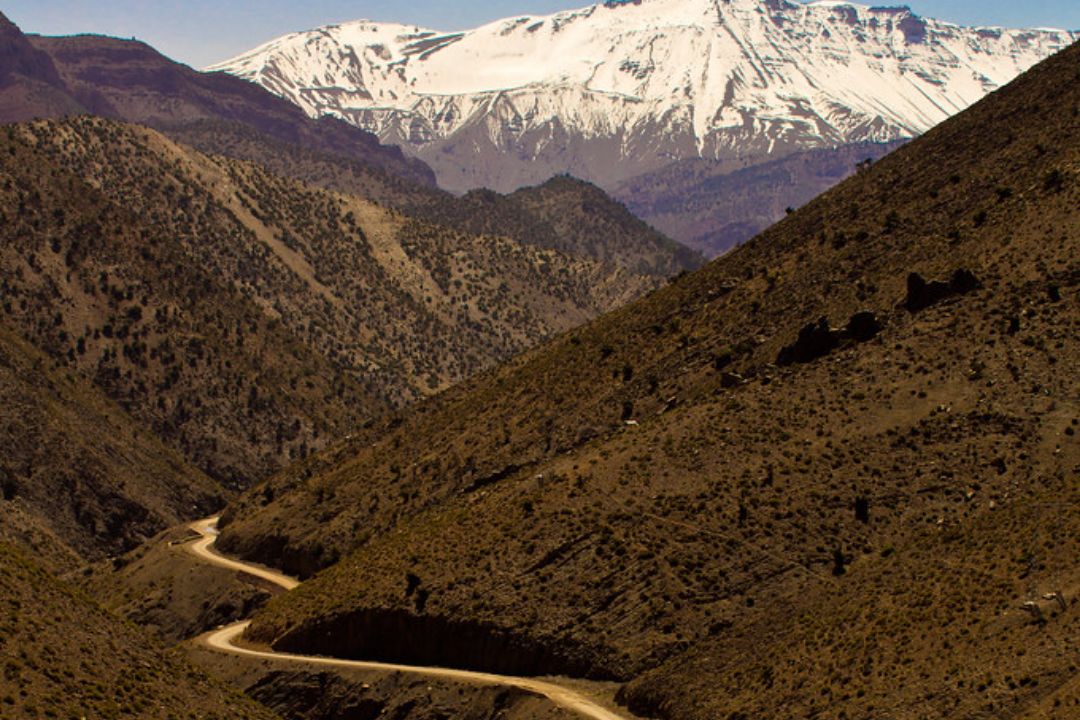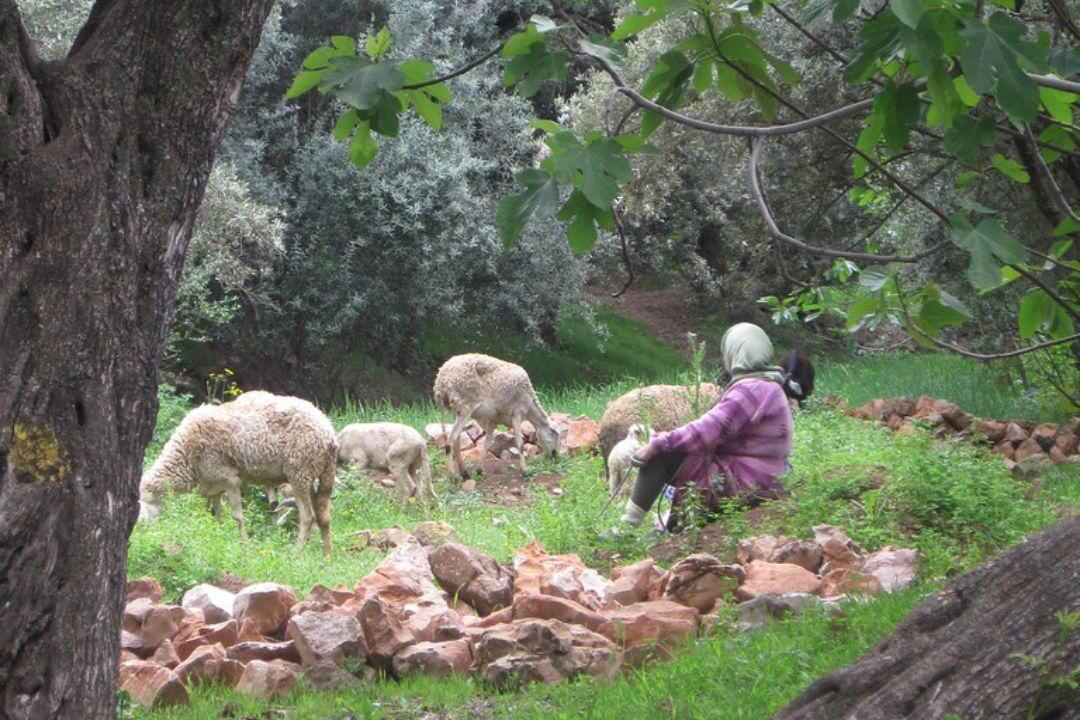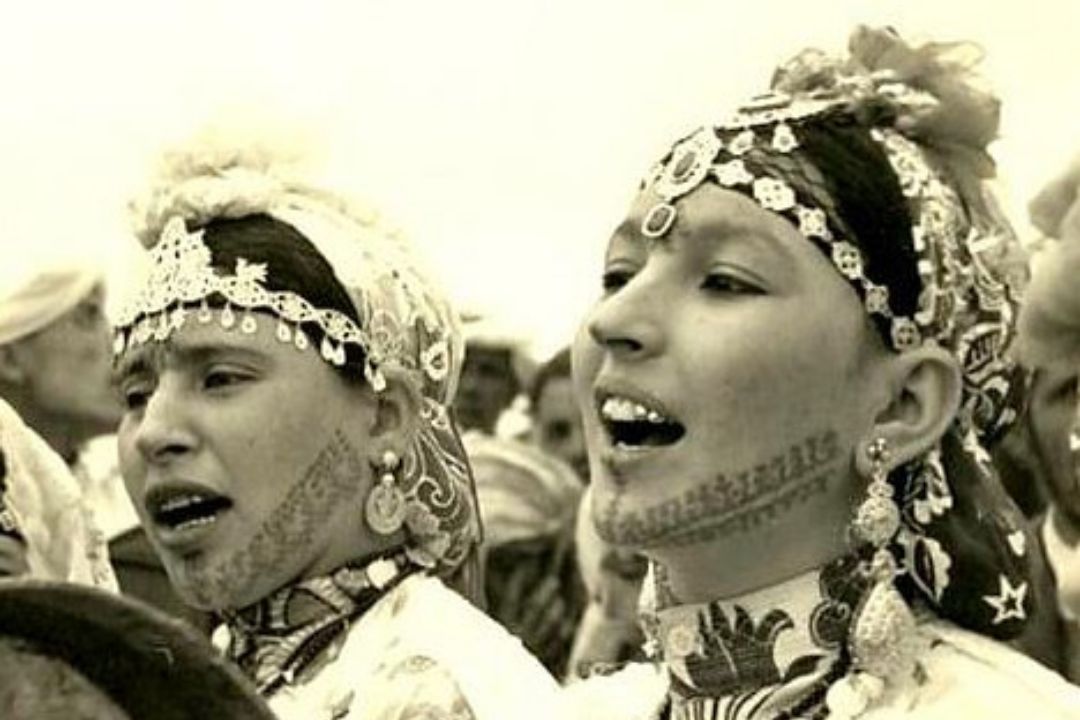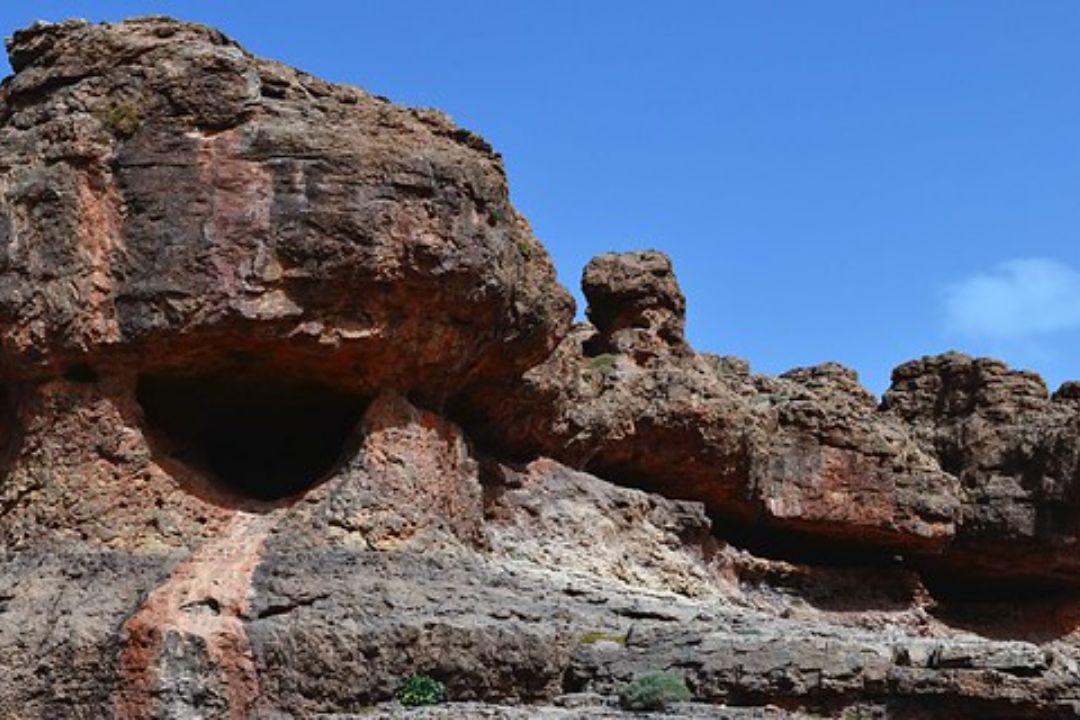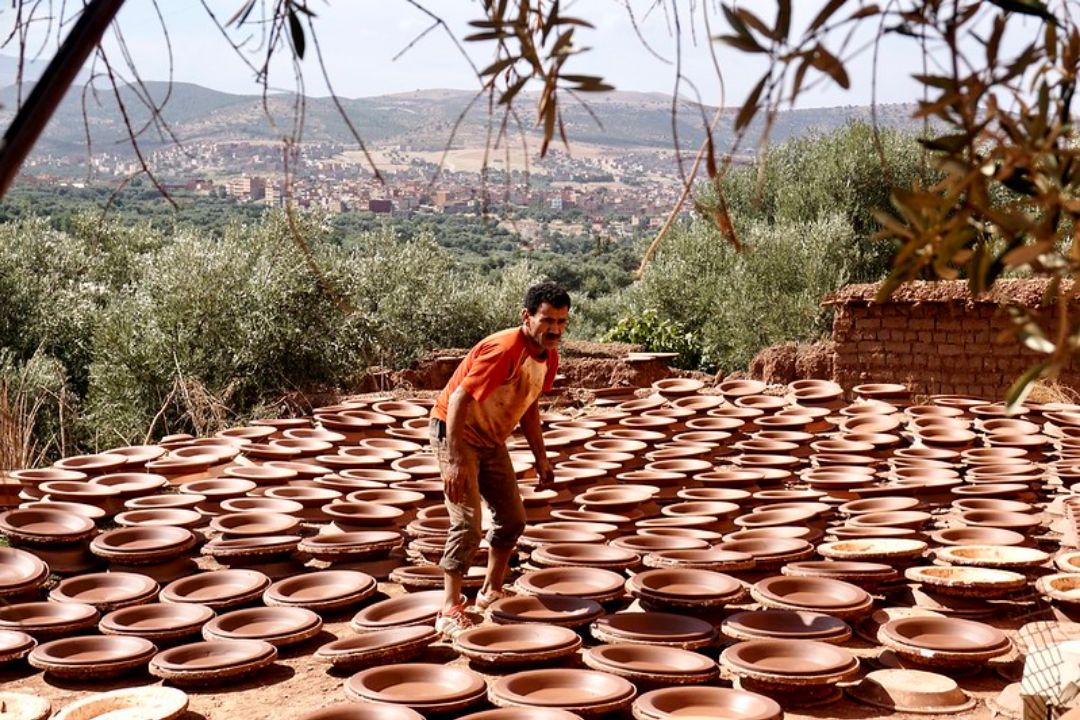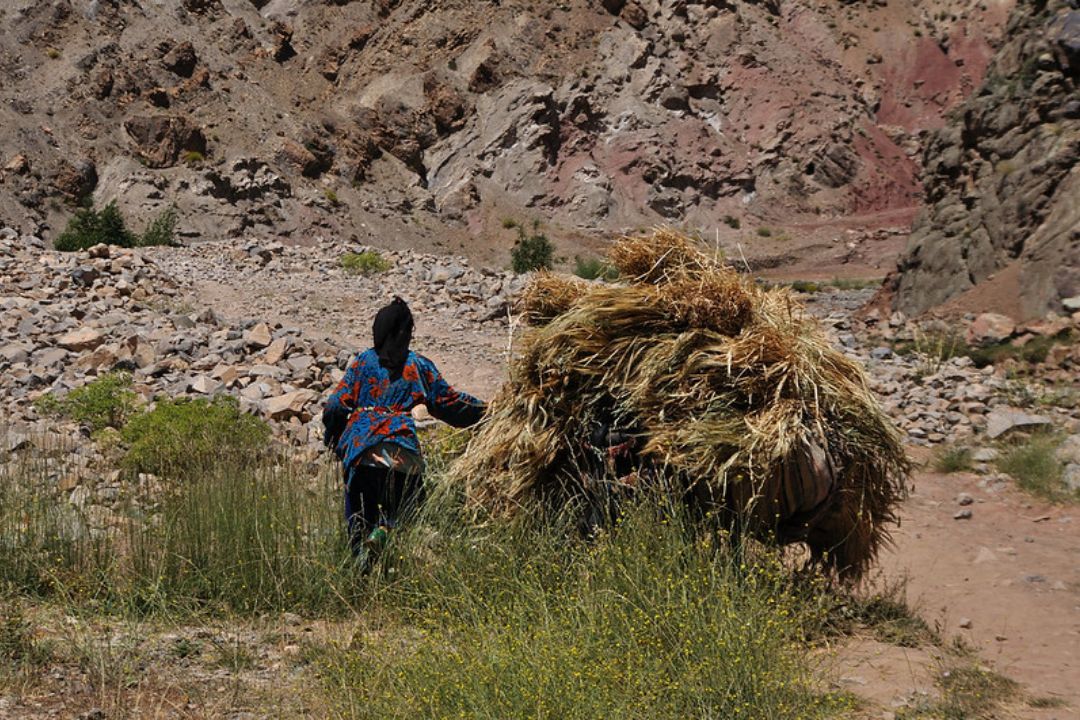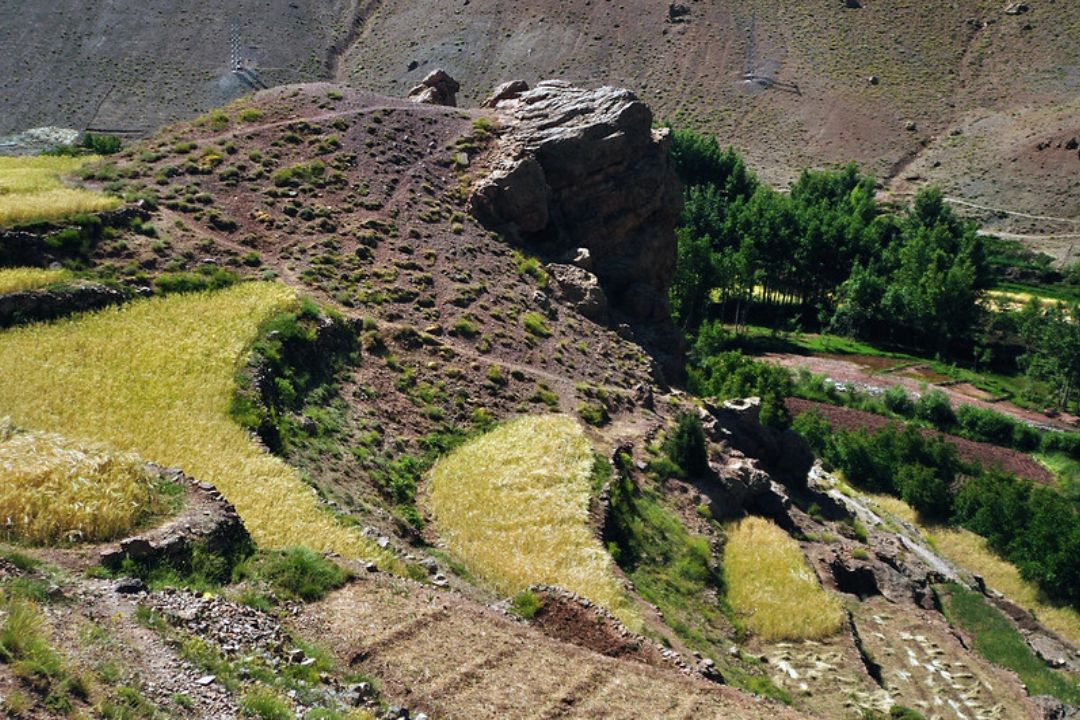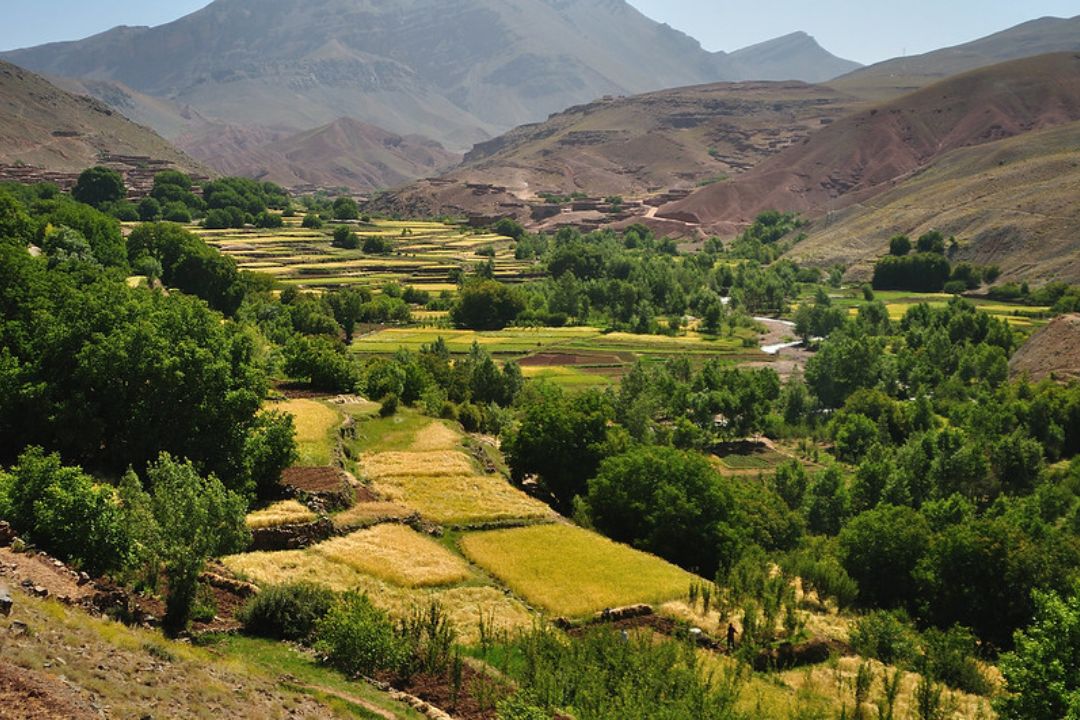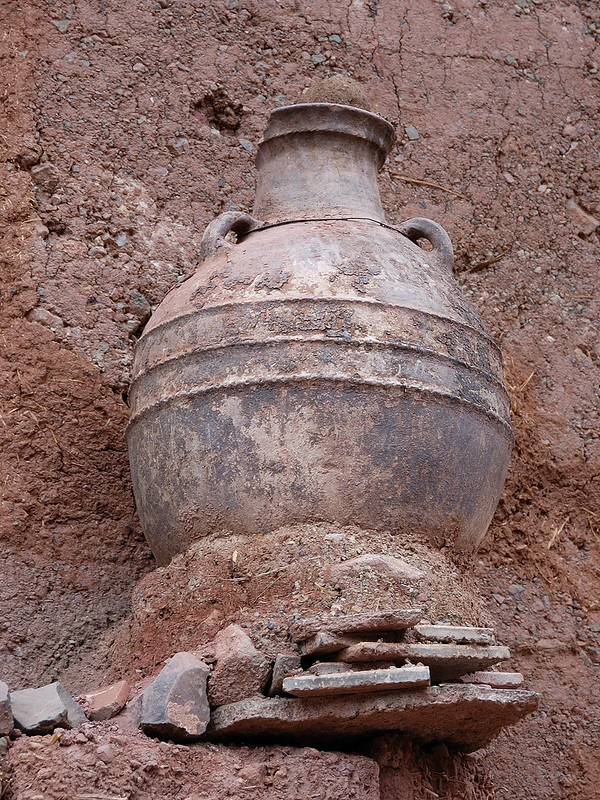From the Panoramas of Tassaoute to the Valley of Roses - 8 Days
Duration: 8 Days
2 Person Minimum
Overview
A grand trek from the northern valleys of Aït Boulli and Tassaoute to the southern valleys of M'Goun and Roses. This off-the-beaten-path itinerary takes you through high plateaus, the ascent of M'Goun summit, and authentic encounters in isolated Berber villages. A journey full of contrasts, between green valleys and mineral landscapes.
Tour Plan
Arrival at Marrakech airport, welcome, then transfer to your hotel, check-in.
After breakfast, transfer by minibus towards the Central High Atlas via Demnate and the fabulous site of Imi n’Ifri. Arrival at the village of Abachkou in the Aït Boulli valley. Meet your muleteer team and cook, lunch by the river, then start your hike through red earth villages, walnut orchards, passing through Tazegzaout, Aqua n’Daghour, and terraced crops. Arrival at Rougoult village (1900m), bivouac setup, dinner and overnight stay. Minibus journey: 4h30. Hiking: 2h30.
After breakfast, hike up a beautiful valley and small gorges, a site of slate rock and sheepfolds along the Assif N’aqua N’Tfira toward the Tizi n’Rougoult pass (2900m). Lunch at the foot of the pass with a magnificent view over the Tassaoute valley and the Rat and Tignousti mountains, then descend to Idoughmamen (2600m), with panoramic views over the superb Tassaoute valley. Bivouac setup, dinner and overnight stay. 6h of walking.
After breakfast, begin a steady ascent to Asdrem Pass (3000m), offering a stunning panorama over the Tassaoute valley and surrounding peaks. Stop near a small spring flowing from a rock, not far from the sheepfolds. Discover numerous sinkholes and caves used by nomads in summer. The Ait Atta and Imghranes settle here with their herds of goats, sheep, and camels from May to September. Then descend to your bivouac near the Tessaoute springs (2900m) on beautiful grasslands. Setup, dinner and overnight stay. 5 to 6h of walking.
This day is dedicated to the ascent of the M’Goun summit (4068m). Preferably start early to enjoy the beautiful light. Cross magnificent landscapes and ascend to the ridge. Pause to enjoy the views, then reach the summit with a stunning panorama over all surrounding peaks and valleys. Picnic, then descend to Ifri n’Ait Hamou (2800m). 8h of walking.
Descend toward the Tichki valley, possible encounters with Bedouins herding goats, sheep, and camels. Lunch break in a great spot. In the afternoon, continue your hike to the village of Ameskar (2100m), bivouac or guesthouse setup, crossing earthen villages. 6h of walking.
After breakfast, transfer back to Marrakech through beautiful landscapes. You will pass through Kalaat M’gouna, the capital of the valley of roses, famous for its rose cultivation, and the palm grove of Skoura. Then continue through Ouarzazate and the Tichka pass (2260m). Stop for lunch en route. Arrival in Marrakech in the afternoon, hotel or riad check-in, dinner and overnight stay. 7h of travel.
Transfer to the airport, assistance with departure formalities.
Included
- Airport transfers
- Road transfers between Marrakech and the trek start/end point
- All camping and kitchen equipment
- Full board during the trek
- Services of muleteers and mules
- Cook services
- Certified mountain guide
- Hotel and meals in Marrakech
- Guesthouse accommodation if needed
Exclude
- Drinks and personal expenses
- Repatriation insurance
- Traditional tips for the team
- Extras
Extra Info
Duration: 8 days
Level: Average of 5 to 6 hours of walking per day
Season: May to late October
Arrival Airport: Marrakech-Menara
Climate:
Mountain climate in general (Day: 20°–30°C / Night: 10°–17°C)
Wildlife: Caracal – Cuvier’s gazelle – Barbary sheep – Jackal – Fox – Barbary macaque – Squirrels – Bearded vulture – Golden eagle – Buzzards – Ravens – Falcons – Wheatear – Lark – Hoopoe – Kingfisher – Robins – Blackbirds – Storks
Flora: Red and thuriferous juniper – Holm oak – Thuja – Thorny xerophytes – Adenocarpus – Broom – Boxwood, etc.
Supervision:
Certified Moroccan mountain guide fluent in foreign languages, approved by the Ministry of Tourism, plus cook and muleteers.
Accommodation:
2 nights in hotel in Marrakech, in double room half-board or single room on request
Other nights in bivouac, homestay or guesthouse, depending on program and weather
Provided: Small igloo tents (2-person or individual), individual foam mattress
1 kitchen tent and 1 large mess tent with ground mats for meals
Transport:
All transfers in comfortable air-conditioned vehicle from/to airport
Luggage Portage:
Mules are used to carry luggage
Food:
Moroccan cuisine with Berber and Arab flavors is always appreciated:
Breakfast: Coffee – Milk – Cheese – Black tea – Mint tea – Jam – Butter – Honey – Cocoa powder – Chocolate spread – Bread
Lunch: Various salads – Pasta – Rice – Lentils – White beans – Bread – Seasonal dessert – Mint tea
Dinner: Tajines – Couscous – Soups – Bread – Dessert – Verbena tea
Our tours are full board. Once you leave the city, meals are prepared by your cook: traditional, balanced and varied Moroccan cuisine. During the day, snacks such as dried fruits, cookies, and nuts are provided.
Drinks: Mint tea and bottled water throughout the trip
Practical Information:
Equipment – Please bring 2 pieces of luggage (max 15 kg):
Small backpack for daily use (water bottle, sunscreen, camera…)
Duffel bag preferably (carried by mules – no suitcases please)
Sleeping gear:
Bring a warm and comfortable sleeping bag (Warm blankets are available in guesthouses)
Clothing:
1 hat/cap or scarf
Breathable short-sleeve t-shirts (1 per 2–3 hiking days)
1 fleece jacket or sweater
1 mountain trousers
Specific hiking socks to prevent blisters
1 pair of lightweight hiking boots with ankle support
1 sarong (useful for discreet washing)
Underwear
1 comfortable evening trousers
1 pair of very light evening shoes
Personal First Aid Kit:
We carry a basic first aid kit. Please bring your own supplies:
Painkillers – Anti-inflammatory – Antispasmodic – Intestinal antiseptic – Antiemetic – Band-aids – Small Elastoplast roll – Antiseptic – Eye drops – Your usual personal meds (antibiotics, etc.)
Formalities:
Currency:
1 Euro ≈ 10 to 11 dirhams (varies by bank). International Visa cards work in major cities. Currency exchange offices are available.
Note: Avoid withdrawing too much as exporting dirhams is prohibited.
Local Time:
Morocco is GMT time – one hour behind most of Europe.
Passport:
For French, Belgian, or Swiss nationals, a valid passport is required (no visa), valid for at least 6 months after entry.
Health:
No vaccinations are required. Prevention remains the best protection.
Monnaie :
1 euro équivaut à environ 10 à 11 dirhams selon le cour de la banque. Dans toutes les grandes villes, vous pourrez retirer de l'argent avec une carte Visa internationale. Vous trouverez également de nombreux bureaux de change. Attention, ne retirez pas trop d'argent car l'exportation des dirhams est interdite.
Heure locale :
Le Maroc est à l'heure GMT, il y a donc une heure de décalage par rapport à l’Europe.
Passeport :
Pour les ressortissants français, belges ou suisses, passeport en cours de validité (pas de visa) valable au moins six mois après la date d’entrée sur le territoire marocain.
Santé :
Aucune vaccination n'est obligatoire. La meilleure précaution restant la prévention.
From
680€

